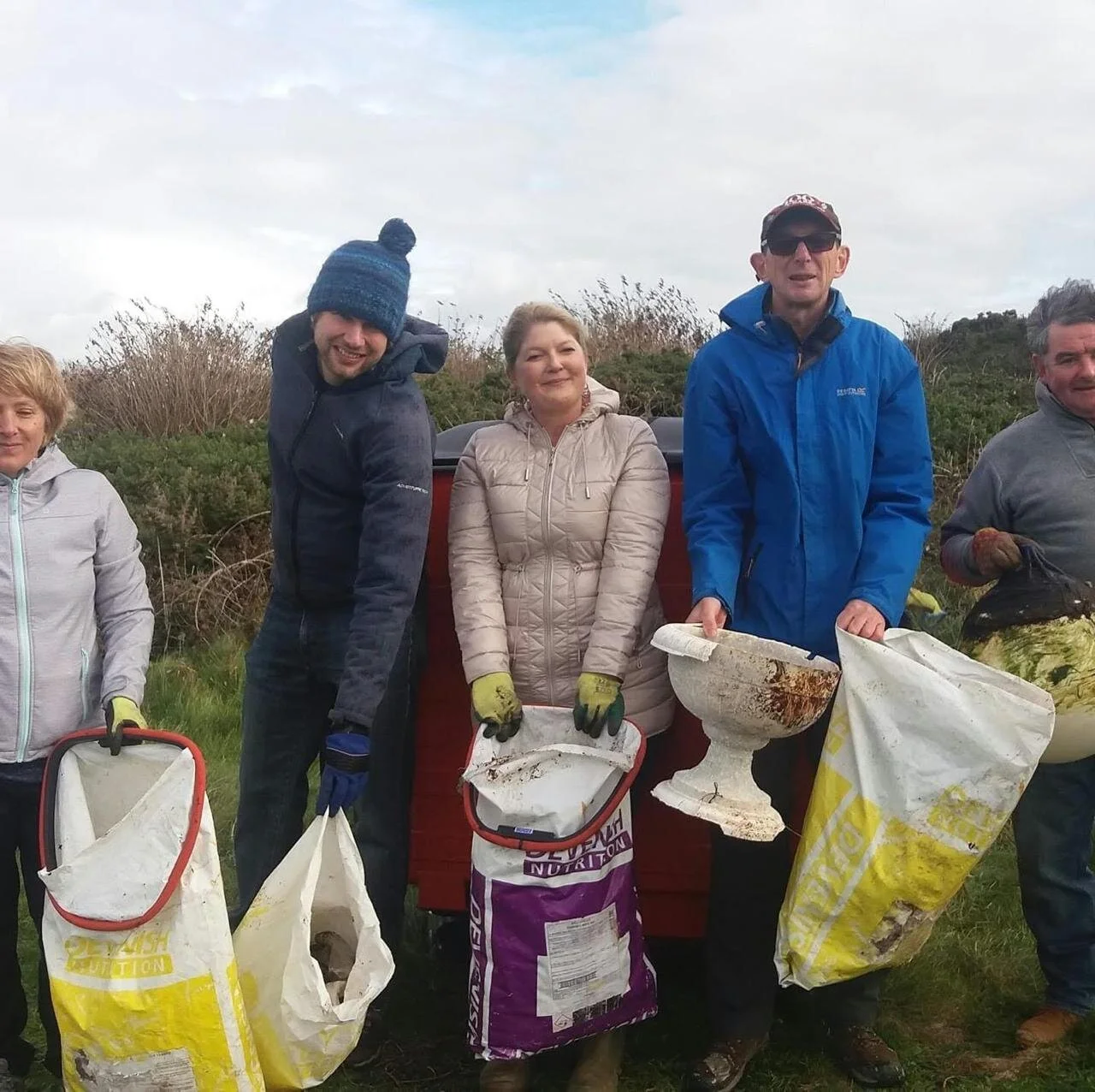What is being done elsewhere?
Recycling systems through the UK vary. It is striking that garden waste and cardboard are collected nearly everywhere on the kerbside. For residual waste, fortnightly collections are the norm. Some local authorities have gone even further and make one collection every three weeks.
Liverpool:
Glass, Cans, Paper, Cardboard, Plastic bottles all in one recycling bin, collected fortnightly
Fortnightly residual waste collection in most areas but weekly in some terraces with limited space for bins
Green waste collection
Lancaster City Council (incl. Heyhsam):
Two recycling boxes, similar to Douglas
Residual waste and recycling is picked up fortnightly
Green waste collection
Guernsey:
Glass in carrier bags, two recycling bags in different colours and a small food recycling bin
Food waste collected weekly, dry recycling fortnightly
No green waste collection
Residual waste in bags, collected fortnightly
Charges for residual waste, payment sticker attached to every bag
Rushen, Arbory, Northern Parishes on Isle of Man:
No kerbside recycling collection
Residual waste collected fortnightly
Everywhere else on Isle of Man: -
No kerbside recycling collection (apart from Douglas and Braddan)
Residual waste collection weekly
Which limits exist to do the same in Douglas?
All recycling in one bin:
The advantages of the system are that it reduces the number of containers, which can save space and effort to sort materials. However, it also has some big disadvantages. As there is more sorting to do at the waste processing facility, the recycling costs are higher. Paper and cardboard often get wet or contaminated by glass splinters. The risks that recycling loads are rejected by processing facilities are much higher, which is a big factor for the Isle of Man as transport costs are much higher than elsewhere.
Food waste collection:
Food waste cannot be commercially composted due to health risks. An anaerobic digester of an industrial scale is not available on the Isle of Man yet. While it would be possible to build one, costs would be high and it is questionable whether there would be enough waste to make it worthwhile. Transporting the food waste off island would not be very beneficial for the environment and costly.
Recycling with bags:
While bags can save space, risks for the council's waste services would be higher due to sharp objects poking through the bags. Seagulls can, and most likely will rip recycling bags apart as they already associate bin bags with food. It is also harder to see whether contamination is present if bags are knotted up. Contamination in boxes is easier to spot and remove by the council's waste services.
Payment for residual waste bags:
Paying for residual waste directly encourages people to reduce it. Bags would also save space and people would not have to drag their bins back into their homes after each collection. Some big disadvantages are also present. For residual waste bags the risks for injury and seagull attacks are even higher than described above. People would be inconvenienced having to get the stickers. Support from the population is very questionable.
Paper & cardboard mixed:
Putting paper and cardboard into the same container would save space and effort for households. However paper and card are usually not separated in waste processing facilities. Payments for pure paper are much higher than for cardboard or mixed loads. From an environmental perspective paper recycling is also much more worthwhile than 'downcycling' it together with cardboard. Douglas currently has a good contract with a UK plant for paper recycling. The verdict on this issue is still out.
The next episode (Episode 3) will shine a light on:
the biggest influences on recycling rates
what the proposals in council were
how and when they would be implemented
- April 2024
- March 2024
- February 2024
- December 2023
- November 2023
- July 2023
- May 2023
- March 2023
- February 2023
- November 2022
- September 2022
- June 2022
- May 2022
- March 2022
- January 2022
- December 2021
- November 2021
- July 2021
- June 2021
- April 2021
- February 2021
- January 2021
- July 2020
- June 2020
- January 2020
- December 2019
- November 2019
- October 2019
- September 2019
- August 2019
- July 2019
- June 2019
- May 2019
- April 2019
- March 2019
- February 2019
- August 2018
- July 2018
- September 2016
- August 2016


